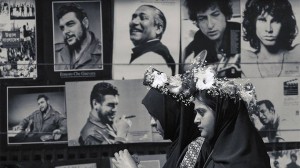This preoccupation with Zia and Mujib at these eventful current times exasperates many of us
The history and heritage season is largely over with the arrival of scorching Boishakh, but the debates regarding our historical leaders refuse to wilt in the summer heat. This preoccupation with Zia and Mujib at these eventful current times exasperates many of us. The more sophisticated among us deplore our chronic predisposition to raise leaders above broad historical trends and the personality cult-like behaviour of our major parties.
We fail to add up why the BNP, faced now with perhaps the biggest crises since the overthrow of President Sattar, resorted to focus on Zia’s role in 1971 while countless other burning issues remain uncontested in the public arena. But if this seems madness to us, there is a method in the madness – the method may be by design or accidental.
Rumi Ahmed in his article “History wars: Zia and BNP’s future” (DT, March 16), in my opinion, puts the finger on the essence of the problem and opportunity that compelled BNP to bring anew Zia’s historic role in 1971 to popular attention. His money quote from the article, “A party cannot build an army of selfless street fighters without positive reinforcement of an idol father figure. Without memory of Zia and his pragmatic politics of synthesis, BNP is now a loose collection of people of varying negative sentiments like anti-secularism, anti-India sentiment, or other competing interests. This may be the major reason there is this terrible inertia among its activists, which is preventing the BNP from launching an all-out decisive movement. And that is why BNP needs Zia again …”
The art of projecting leaders as heroes is as old as human civilisation. For a country beset with rivalry of narratives of heroic leaderships, we have remarkably little discussion of psychological underpinnings behind this atavistic urge. Human society has a need to find and celebrate leaders as heroes programmed by thousands of years of cultural and social evolution.
The storyline of a hero struggling against men and nature, overcoming adversity, and then bringing salvation to his people is the oldest and simplest storyline. A leader as a hero is a basic human archetypal construct. Archetypes are mental models that developed early in human society to enable our forbearers to make sense of a bewildering world, and increasingly complex society.
Carl Jung, the famous psychologist-philosopher, developed the theory of archetypes, and found that a few universal patterns are present in all stories and mythologies. Among them, the most consistently present is the hero archetype. From the Epic of Gilgamesh to the story of Moses, from Achilles-Odysseus in Iliad-Odyssey to Rama in Ramayana, the same hero archetype keeps reoccurring with remarkable fidelity. We keep reverting to hero archetype because heroes play a fundamental role in making sense of the world for confused and distressed minds.
Heroes give us the illusion that someone can be in control of events, bring order to the chaos, and dispense justice to the wronged. The myth of heroes also creates shared meaning for their community and enhances group cohesion in the face of disintegrating forces. A shared sense of quest and meaning is the most effective glue that bonds groups together and heroes provide that in the most simple and effective form.
Many of us who moan the cult of heroic leadership prevailing in this part of the world fail to see how this basic archetype is being employed even in the most developed societies. When we see how the Republican faithful in the USA try to elevate Ronald Reagan to the altar of saint, or how the Democratic political intellectuals spin the unfinished saga of JFK from Camelot, we can see the hero archetype at play.
Communists, for all their dialectic materialism of impersonal historical forces, proved the most adept practitioners of hero archetype, as evidenced by the personality cults of Lenin, Stalin, and Mao. When we laugh at images of Putin’s semi-naked machismo, we fail to see how effective this crude propaganda is in fulfilling the Russian ideal of heroic leadership.
BNP leadership has decided that at this time of crisis, the most effective rallying idea for their party supporters, weak and strong, is not a burning contemporary issue, but refurbishing Zia’s role in our history. They are, in effect, trying to give the sense of deep meaning and shared ideals to the supporters. The effectiveness of this effort will only be known in time, but we should see that this may not be a frivolous campaign with no forethought.
For all its power and prevalence, the hero archetype is largely receding from the mainstream political discourse in advanced democracies. Higher level political discussions in countries like the US, Britain, and Germany is largely devoid of adulation or iconoclastic discussion of past political heroes.
The contribution and exploits of leaders are regarded as remarkable achievements of normal men with some exceptional abilities. Personal identification with heroic leaders is looked down upon as a sign of intellectual weakness. But until our country reaches that stage of political enlightenment, we should expect to see a lot more of the hero archetype at play in our national and personal discourses.
Source: UNBConnect











The writer obviously is an Awami League supporter who has totally failed to narrate what his party has elevated the likes of Sheikh Mujib to the pedestal of God like cult. He should stop writing crap. He should be realistic and see real things. The country has become a one party cult. It is going through dangerous times as in 1974-75 when Bangladesh became a one party state.